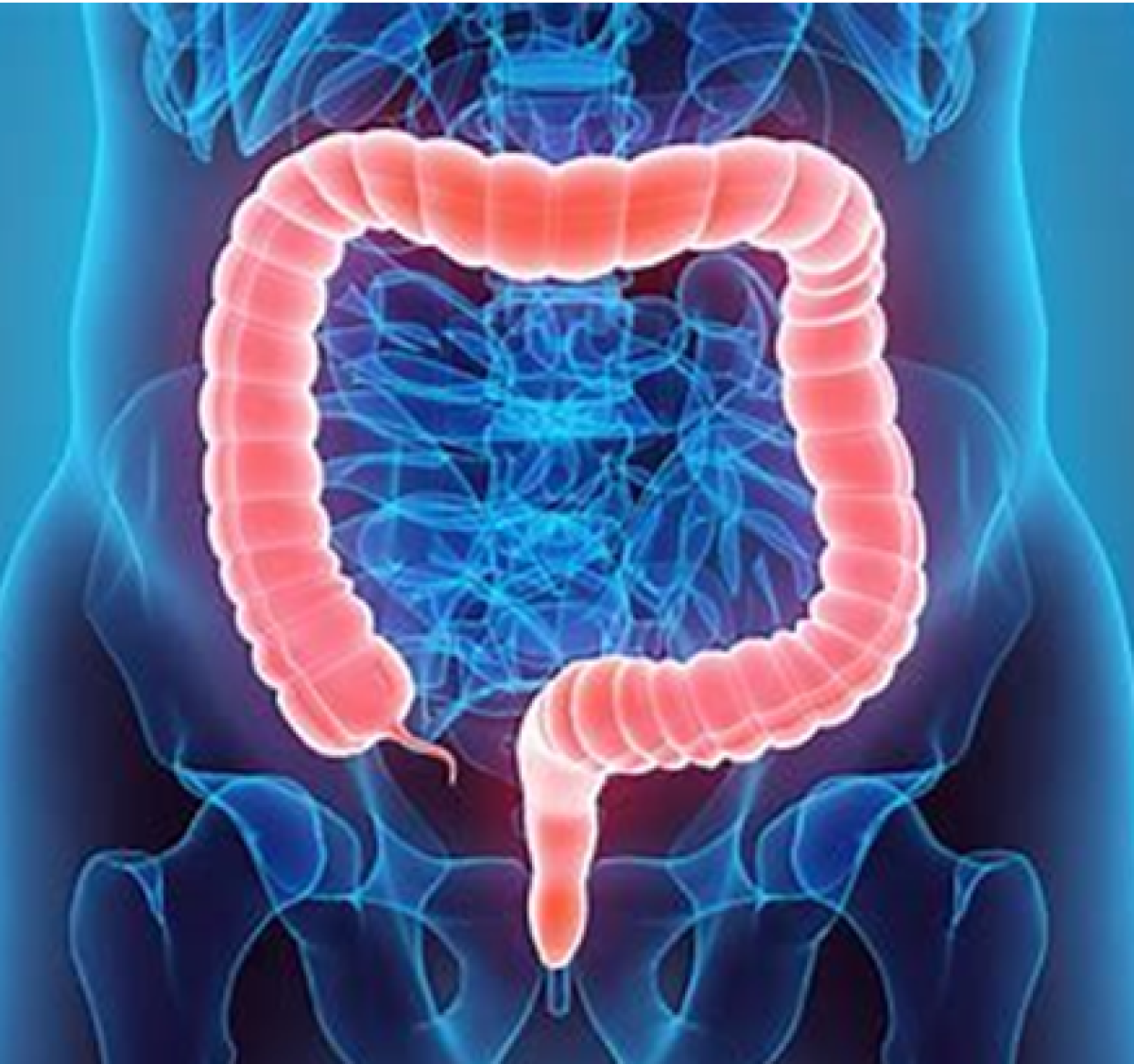


Colorectal cancer usually derives from bowel polyps that over a period of a decade can change into a colorectal cancer. In the early stage of polyps they can be removed by a simple colonoscopy and that’s why screening can help to prevent colorectal cancer. But even when polyps has evolved into a cancer it can in most cases be treated with a curative intent by our multidisciplinary team.
Causes
Smoking, eating of (barbequed) red meat, obesity, diabetes, inflammatory bowel disease, bowel polyps, genetic predisposition (like Lynch syndrome)
Symptoms
Rectal bleeding, change of stools, diarrhoea, constipation, and abdominal cramps or pain.
Diagnostics
Blood tests, colonoscopy (with biopsy), and in case of cancer a CT scan and/or MRI
Treatment:
Typically consists of (laparoscopic) surgery frequently combined with other modalities like chemotherapy, immunotherapy and radiotherapy depending on the type and stage of the cancer as being decided in our multidisciplinary tumor-board. In most cases the patient can go home with 1-2 weeks after the surgery.
Risks of the surgery
Anastomotic leakage (<5%), Hematoma/ bleeding, change of stools/ bowel habits, wound infection, incontinence of soiling, urogenital discomfort, thrombosis
Why chose Professor Guido Mannaerts MD PhD
He has done over 1000 laparoscopic colorectal resections makes him a very experienced colorectal surgeon leading to a low complication rate and a high chance to restore the bowel continuity in almost all cases by a minimal invasive laparoscopic approach.
Professor Guido did his PhD on the treatment locally advanced rectal cancer making him most experienced even in the most complex rectal cancer cases.
His dedication to patient-centred care and being committed to achieve the best results for you and your disease by pleasant honest communication, state of the art surgical care using the latest techniques available. This includes minimal invasive surgical approaches, preventing a stoma, and trying to restore bowel continuity as much as possible.